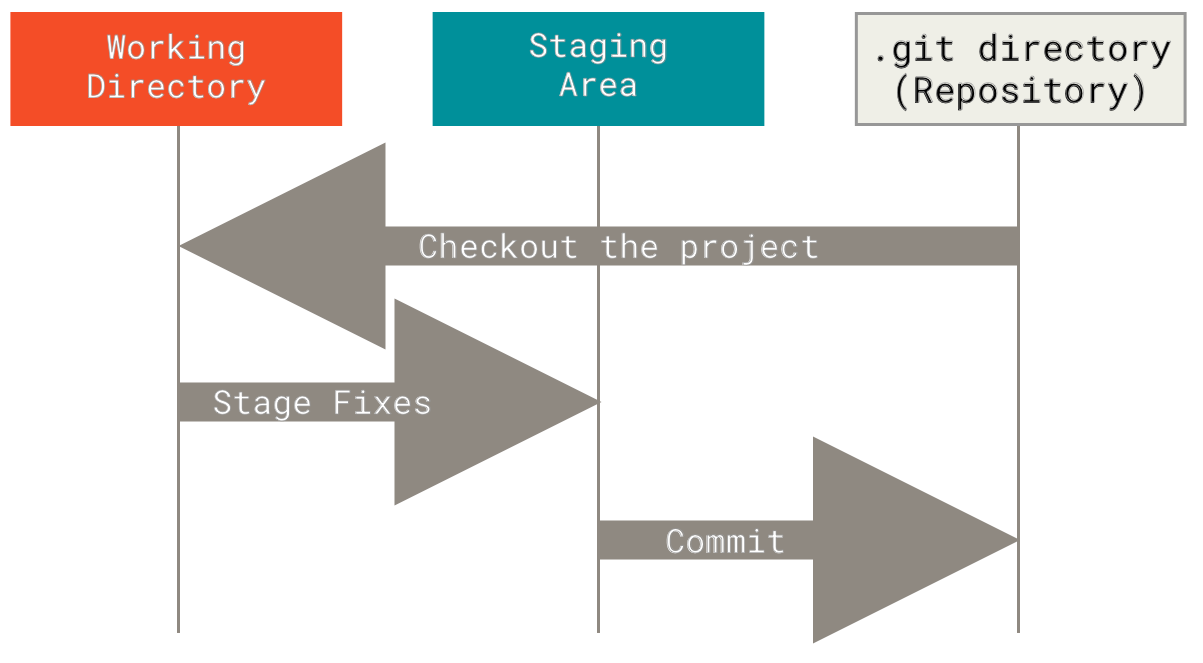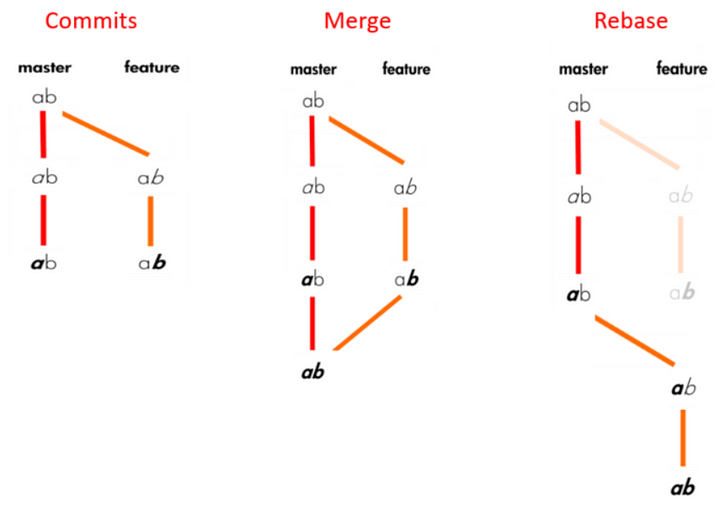Daily Git Commands
Introduction
git is a version control system that is widely used in software development. It is a distributed version control system that allows developers to work on the same project at the same time. It is also a powerful tool that can be used to track changes in files and revert to previous versions.
Git Workflow

Git Stages
 Staging area is a concept that is often used in
Staging area is a concept that is often used in git. It is a temporary area where files are stored before they are committed to the repository.
Usage
Create a new repository
# create a new directory
$ mkdir myproject
# change directory
$ cd myproject
# initialize the directory as a git repository
$ git init
Clone an existing repository
# clone the repository
$ git clone https://github.com/ian729/silver-umbrella.git
Add files to the staging area
# add all files in the current directory to the staging area
$ git add -A
# add a specific file to the staging area
$ git add README.md
Commit changes
# commit all changes in the staging area
$ git commit -m "commit message"
Push changes to remote repository
# push changes to remote repository
$ git push
Mixed reset(default)
# reset all changes in the staging area
$ git reset
$ git reset --mixed
# reset a specific file in the staging area
$ git reset README.md
Hard reset
# hard reset all changes in the staging area
$ git reset --hard
# hard reset a specific file in the staging area
$ git reset --hard README.md
Soft reset
# soft reset all changes in the staging area
$ git reset --soft
# soft reset a specific file in the staging area
$ git reset --soft README.md
Difference between three reset types
| Type | Staging Area | Working Directory | | — | — | — | | Mixed | Reset | Not Reset | | Hard | Reset | Reset | | Soft | Not Reset | Not Reset |

Revert changes
# revert all changes in the staging area
$ git checkout -- .
# revert a specific file in the staging area
$ git checkout -- README.md
Squash commits
# squash the last 3 commits into one
$ git rebase -i HEAD~3
Pull changes from remote repository
# pull changes from remote repository
$ git pull
# pull changes while rebasing local commits
$ git pull --rebase
